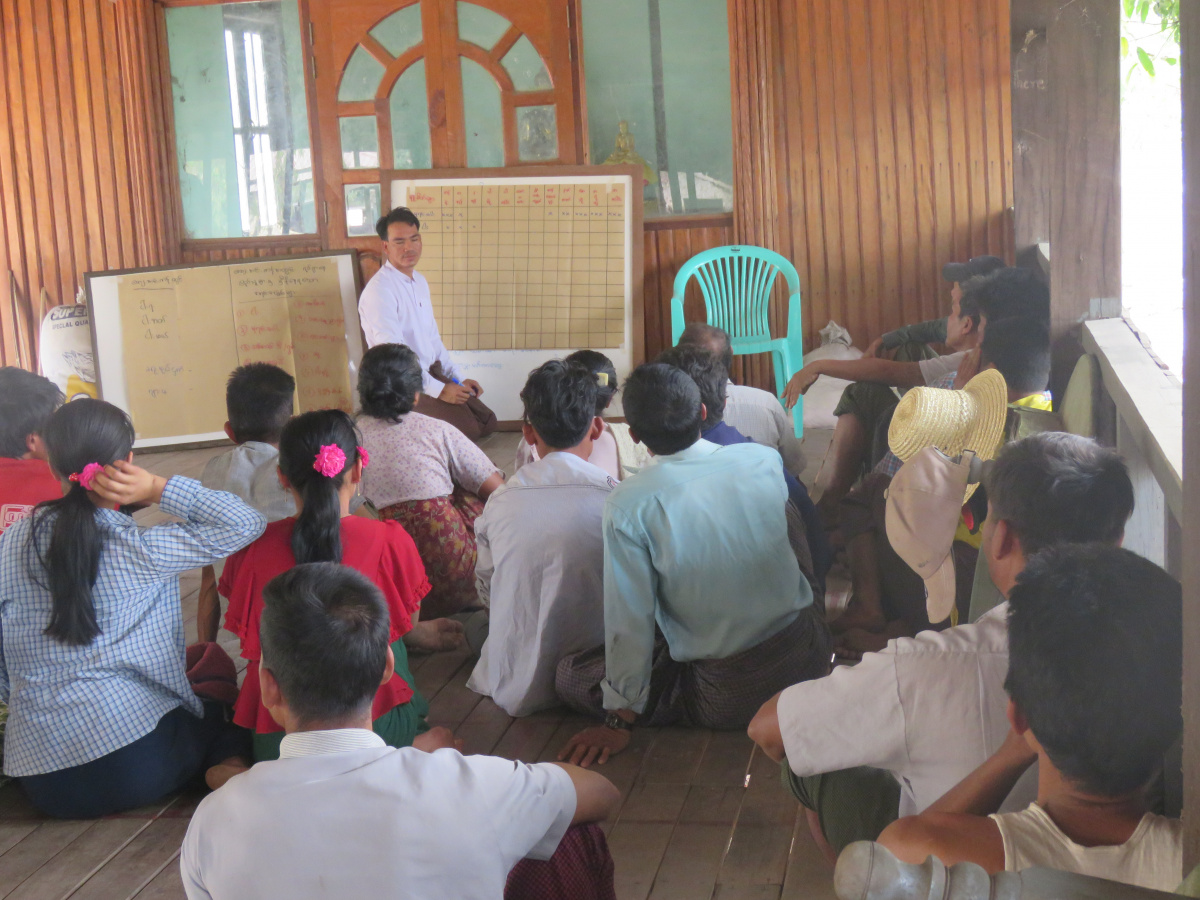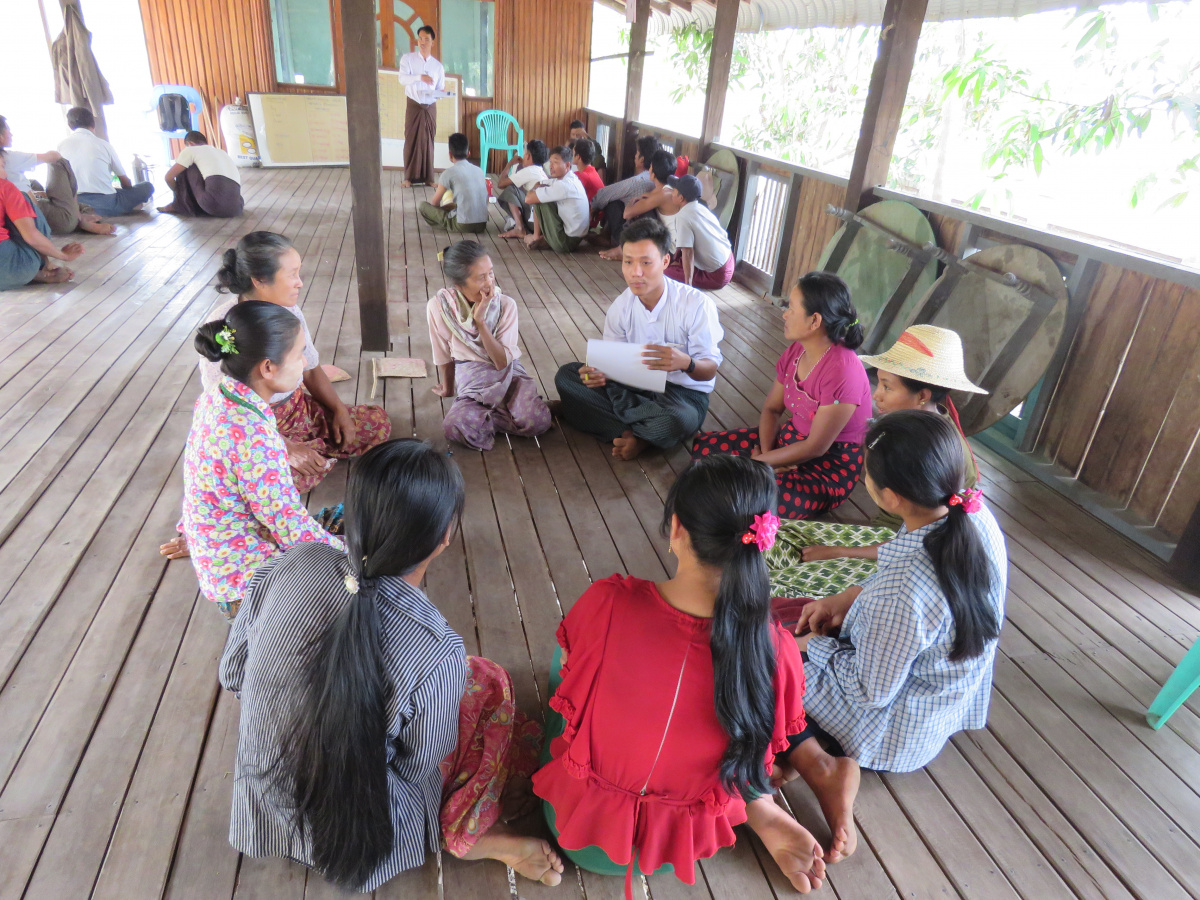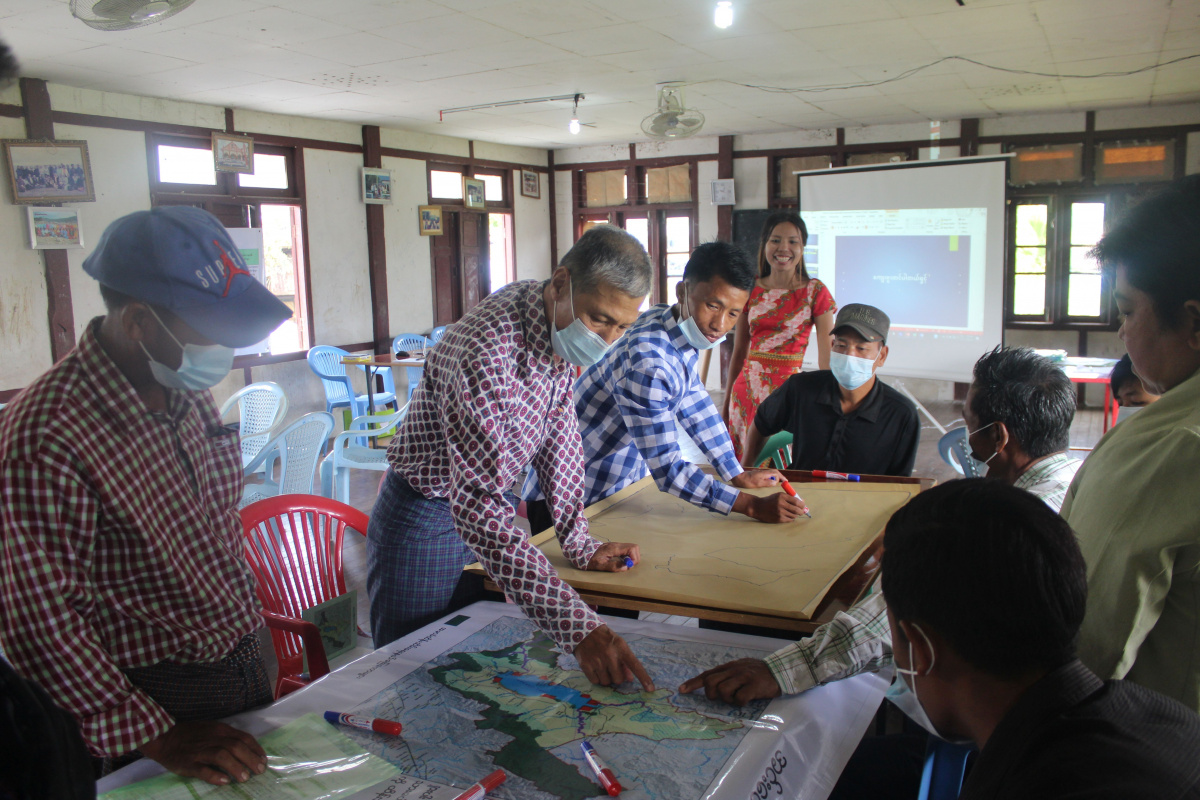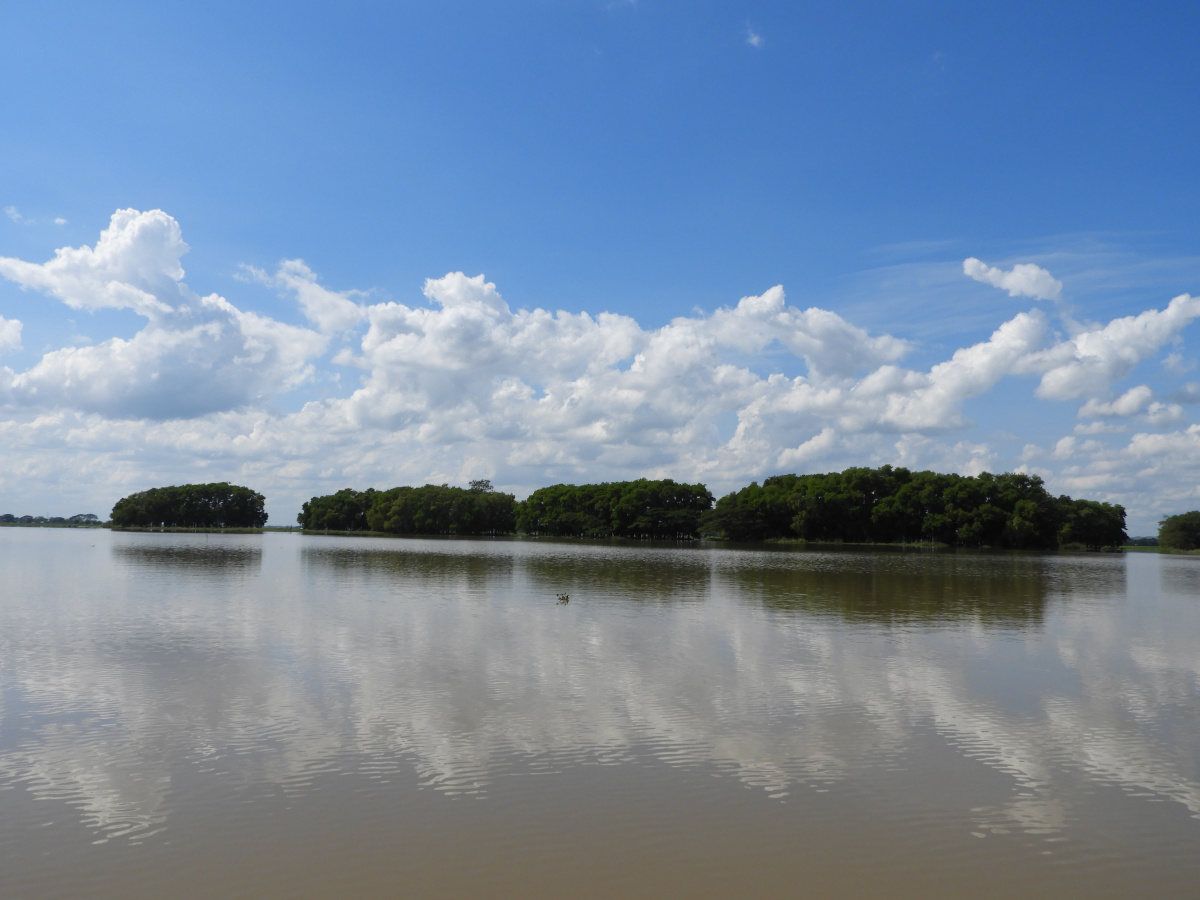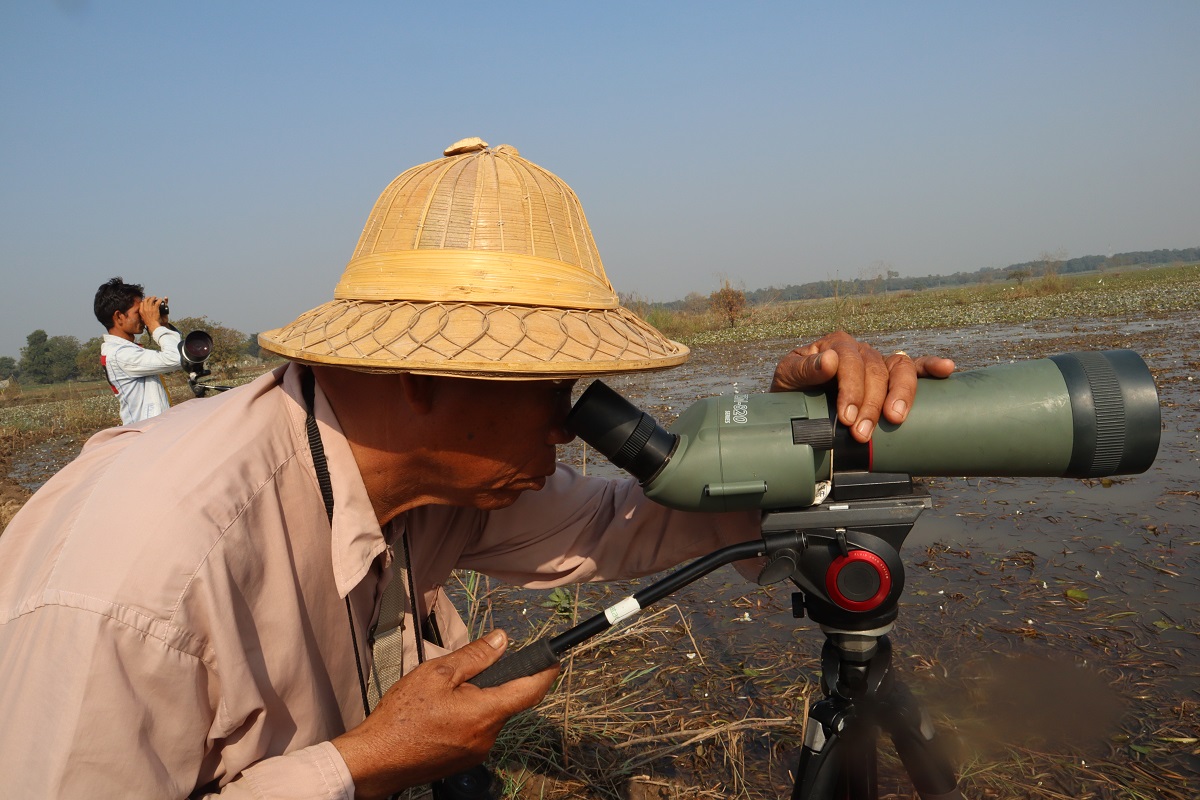Fostering collaboration to ensure a more climate change resilient Kye-In Lake in Myanmar
Supported by IUCN’s Mekong WET project, Friends of Wildlife (FOW) Myanmar’s “Supporting Systematic Management of Kye-in Lake” grant has worked with local stakeholders to provide solutions to the impacts of overfishing, agricultural encroachment and illegal timber extraction on Kye-In Lake.
FOW established a Fishing-Free Zone in the lake, training community members to conduct joint patrols to ensure effective conservation of the area. They have also conducted a climate change vulnerability assessment for the wetland, which will support the development of a management plan for the site.
The project aims to strengthen the management of the lake through participatory governance, to ensure long-term ecosystem services, such as the provision of food and livelihood support through the fishery and the supply of water for agricultural and household use.
To understand the threats to the lake and develop approaches to strengthen its conservation, FOW has organised nine consultation meetings with stakeholders, including government, rangers and residents who depend on resources from the lake. Throughout the meetings and consultations, FOW gathered data on the lake’s primary stakeholders and the most pressing threats to wetlands. Based on the results, the project established a Fishing-Free Zone in the lake and held capacity building trainings to train community members in joint patrolling, to ensure the effective protection of the fishery. FOW has also worked with stakeholders to conduct a climate change vulnerability assessment for the wetland. The results of the assessment will be used in the development of a five-year management plan for the site to strengthen the resilience of local communities to climate change impacts.
Kye-In Lake covers approximately 910 acres and is located within the Chatthin Wildlife Sanctuary in central Myanmar. The nearby Kye-In village relies on the lake to support their livelihoods, including fishing and agriculture. The population of the village has grown substantially, from approximately 90 people in 1970, to 1,060 residents in 2020 due to an influx of fishers from other areas with dwindling water supply. The rapid population growth has increased pressure on the fishery, and led to an expansion of rice paddy cultivation, with locals digging a drainage ditch to increase the arable area and encroaching on the wetland. Local people also illegally extract timber from the forest to build houses and increase their income.
While sanctuary officials have attempted to mitigate the impacts of illegal activities, they have faced challenges due to a lack of experience in participatory resource management and insufficient knowledge of effective wetland management approaches. This has led to a lack of long-term effective governance for the lake and broken the trust between government staff and local communities.
Since the beginning of the grant, FOW has worked with government staff and local leaders to rebuild their strained relationship. They have worked with the Kye-In Nature Conservation Association (KNCA), a village-level conservation association established in 2020, to understand the needs of the community and the responsibilities of the government staff. Fifteen young university graduates from the village are participating in the KNCA, supporting local leadership and sanctuary management. The KNCA and local community members will be responsible for the long-term monitoring of the site, ensuring effective and lasting change in the wetland.
The Mekong WET Small Grants fund several wetlands projects in the Indo-Burma region. These initiatives are directly answering specific climate threats to wetland ecosystems, species, and communities using Ecosystem-based Adaptation strategies as the main approach.
About MWET
Funded by the International Climate Initiative (IKI) of the German Federal Ministry for the Environment, Nature Conservation, Building and Nuclear Safety (BMUB), the “Mekong WET: Building Resilience of Wetlands in the Lower Mekong Region” project aims to build climate resilience by harnessing the benefits of wetlands in Cambodia, Lao PDR, Thailand, and Viet Nam.
Mekong WET will help the four countries to address their commitments to the Ramsar Convention, an international treaty for the conservation and sustainable use of wetlands, and to achieve the Aichi Biodiversity Targets.
About IBRRI
The Indo-Burma Ramsar Regional Initiative (IBRRI) was jointly developed by the Ramsar National Focal Points of the five countries (Cambodia, Lao PDR, Myanmar, Thailand, and Viet Nam), and IUCN’s Asia Regional Office, based on specific needs identified in these countries. It was endorsed by the 52nd meeting of the Ramsar Convention Standing Committee in June 2016. The IBRRI aims to support the coordinated implementation of the objectives of the Strategic Plan of the Ramsar Convention. IUCN acts as the Secretariat for the Initiative under the leadership of the Steering Committee, which includes representatives from the five governments and the Ramsar Convention Secretariat as an observer.
